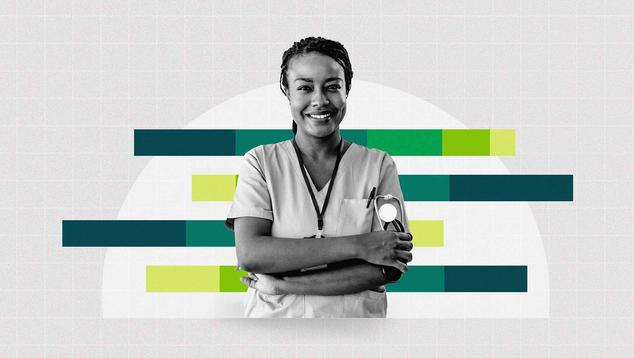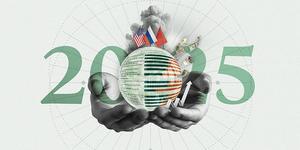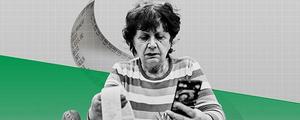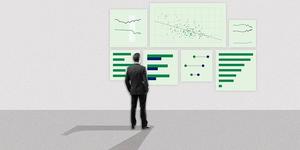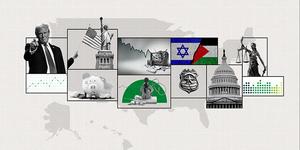WASHINGTON, D.C. -- Three in four Americans consider nurses highly honest and ethical, making them the most trusted of 23 professions rated in Gallup’s annual measurement. Grade-school teachers rank second, with 61% viewing them highly, while military officers, pharmacists and medical doctors also earn high trust from majorities of Americans.
The least trusted professions, with more than half of U.S. adults saying their ethics are low or very low, are lobbyists, members of Congress and TV reporters.
Of the remaining occupations measured in the Dec. 2-18, 2024, poll, six (including police officers, clergy and judges) are viewed more positively than negatively by Americans, although with positive ratings not reaching the majority level. The other nine, notably including bankers, lawyers and business executives, are seen more negatively than positively, with no more than 50% rating their ethics low.
Today’s rank-order aligns with the public’s evaluations of U.S. occupations for the past two decades. Over this period, medical practitioners, grade-school teachers and military officers have been the most trusted professions, while political, sales, business and media-related jobs have constituted the least.
Nurses have earned the highest rating in every year but one since Gallup added them to the annual survey in 1999. The exception was 2001, when firefighters -- included only that year -- earned a record 90% trust rating after their heroism in responding to the 9/11 attacks on the Twin Towers.
Ethics Ratings Stalled at Low Point
Gallup began measuring public trust in various professions in 1976, initially covering 14 jobs. Over the years, the list has changed, with some occupations added and others removed. Since 1999, 11 professions have been tracked annually, while others have been included periodically.
The average very high/high ethics rating of the core 11 professions has decreased from routinely 40% or higher in the early 2000s to closer to 35% during most of the 2010s. It rose slightly in 2020, to a seven-year high of 38%, reflecting enhanced public trust in healthcare workers and teachers during the pandemic. Thereafter, the average declined each year through 2023, when it reached 30%, and it held there in 2024. This mirrors the long-term decline in Americans’ confidence in U.S. institutions.
The relatively low average honesty and ethics ratings in 2023 and 2024 reflect diminished scores for a few professions, in particular, since 2021. That’s the latest year that most of the professions on this year’s list -- all but funeral home directors -- were rated at the same time.
- Trust in medical doctors has fallen 14 percentage points since 2021. After reaching a historical high of 77% in 2020, doctors’ ethics rating not only returned to its 2019/pre-pandemic level of 65% but, at 53%, is now the lowest since the mid-1990s.
- Day care providers, pharmacists, nurses and nursing home operators -- all of which had enjoyed enhanced reviews during year one or year two of the pandemic -- have since dropped below their average pre-pandemic ratings.
- Judges have seen a 10-point decline to 28% in their honesty and ethics rating, by far the lowest for this profession which, before 2021, had scored between 43% and 53%.
- Views of the police have been variable, but after earning majority trust in 2020 and 2021, their rating slipped to 45% in 2023 and 44% today.
- Clergy have lost another six points in public esteem since 2021, continuing the long-term downward trend in trust in that profession.
Ratings of the other 15 professions measured in both years haven’t changed appreciably.
Clergy and Judges Have Fallen Most, Long-Term
The long-term trends paint a slightly different picture, reflecting broader political and societal changes this century.
From the time Gallup started rating all 23 professions in the early 2000s through this year, there has been a 26-point decline in the perceived honesty and ethics of clergy, the most for any group. The proportion saying the clergy have high or very high ethics is down from an average 56% in 2000-2009 to 30% today.
The decline in Americans’ religiosity over this period contributes to the loss of trust in clergy, as the growing proportion of nonreligious adults express lower trust than religious adults. However, the Catholic Church’s child sexual abuse scandals also appear to have contributed to downticks in trust in clergy, including in 2002 and 2018.
The second-most-significant decline in ethics ratings this century has been for judges, who have experienced a 21-point drop since the early 2000s. Some of this change occurred early on, falling from an average 49% in 2000-2009 to 46% in 2007 and to 43% in 2020. But since then, high ratings for judges have tumbled to 28%, paralleling recent downturns in Americans’ confidence in the Supreme Court as well as the judicial system and courts more broadly. The high court’s 2022 Dobbs decision overturning Roe v. Wade as well as various legal cases against Donald Trump since 2020 could explain declines in these ratings by both major parties.
Although trust in the police has varied over the years, the percentage of Americans expressing high trust in them is currently 15 points lower than it was in the 2000s. Grade-school teachers, medical doctors, pharmacists and bankers have also seen double-digit declines over the same period.
Trust in several other professions is down modestly, including TV reporters, whose nine-point slide since the 2000s reflects the decline in Americans’ broader confidence in the news media. Americans’ trust in newspaper reporters, advertising practitioners, nursing home operators and lobbyists has been consistently low over the years, with little change.
Auto mechanics are the lone profession experiencing improved ratings since the 2000s, rising from 24% during that decade to 33% in 2024. Most of this shift occurred between 2001 and 2017, but it has held in two readings since then. While the reason for the change isn’t clear, it’s notable that all major subgroups of Americans have warmed to this profession.
Bottom Line
From doctors and car mechanics to clergy and teachers, Americans interact with numerous professionals in their daily lives, while depending on others they’ve never met to maintain an efficient, fair and secure society. Whether reflecting personal experience or secondhand reports, Americans’ sense of how much they can trust each profession varies widely, likely influencing how they engage with each.
Despite declining public trust in most professions over the past quarter century, the rank order has stayed largely the same, with nurses at the top, followed by grade-school teachers, military officers, pharmacists and medical doctors. Meanwhile, in terms of net trust, members of Congress, advertising practitioners, car salespeople and lobbyists have ranked at the bottom.
There has been more shifting of the rank order in the middle of the list, particularly with clergy, judges and TV reporters moving down several places. Others have shifted up by default, but of the 23 professions measured this year, auto mechanics alone have moved up on account of an improved honesty and ethics score.
To stay up to date with the latest Gallup News insights and updates, follow us on X @Gallup.
Learn more about how the Gallup Poll Social Series works.
View complete question responses and trends (PDF download).
